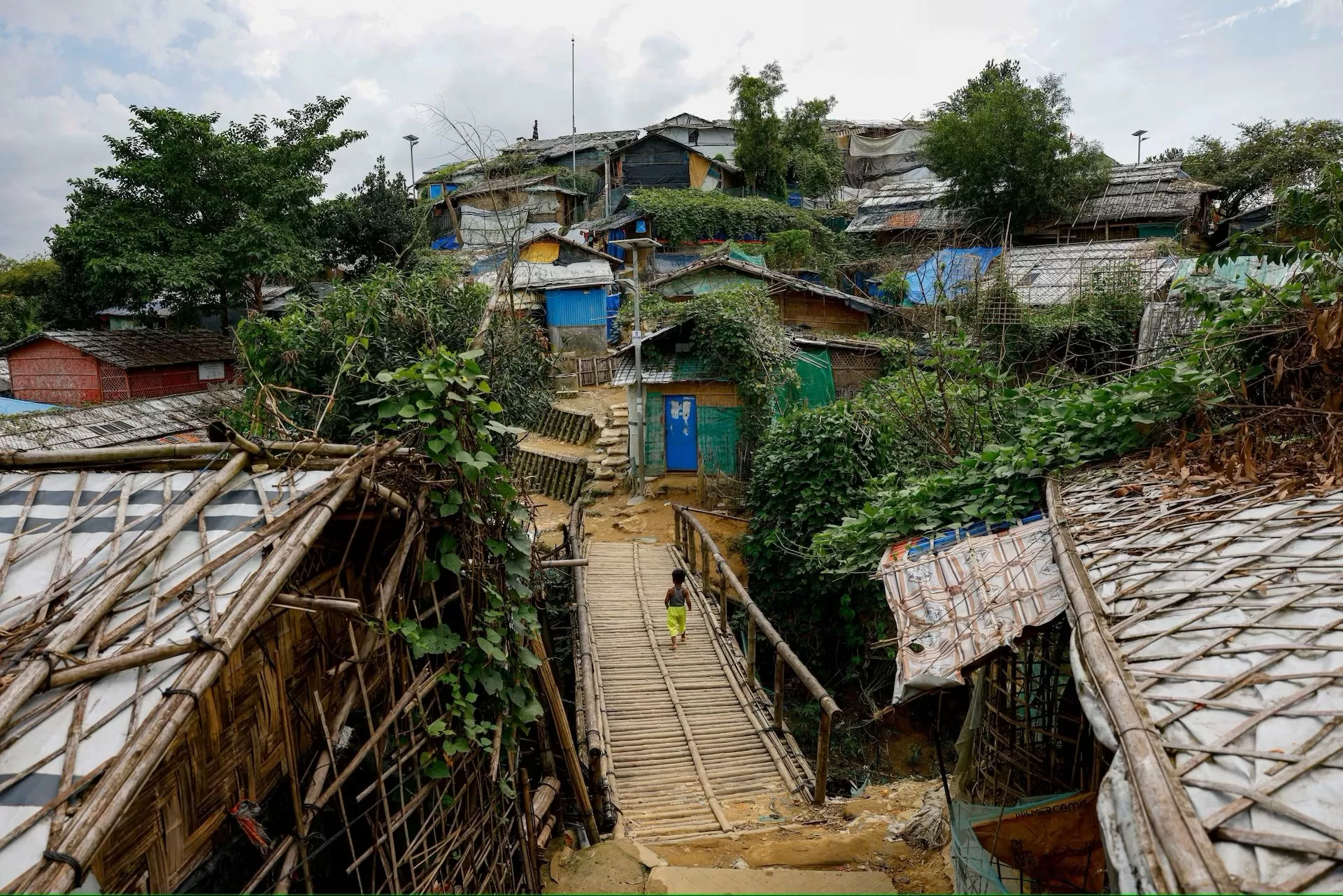Militant Recruitment and Violence Escalate in Cox’s Bazar Refugee Camps: A Tragic Reality for the Rohingya Community
In the midst of the world’s largest refugee crisis, the situation in the Cox’s Bazar refugee camps has reached a new level of urgency. In recent months, the camps have seen a sharp increase in militant recruitment and violence, particularly among the Rohingya community. This has raised concerns about the safety and security of the already vulnerable population, as well as the implications for the host country of Bangladesh and the international community.
According to recent reports, the refugee camps in Cox’s Bazar are now home to over a million Rohingya Muslims who have fled persecution and violence in their homeland of Myanmar. Among this displaced population, a significant number of Rohingya insurgents have emerged, causing widespread fear and instability in the region. The presence of militants in the camps has also led to clashes with law enforcement agencies and rival groups, further exacerbating the already dire situation.
The militant recruitment in the camps has been fueled by a combination of factors, including the ongoing conflict in Myanmar, the lack of basic necessities and opportunities in the camps, and the exploitation of vulnerable individuals by extremist groups. Many of the young men and boys in the camps have been lured into joining these groups with promises of food, shelter, and a sense of purpose. This is a tragic reality for the Rohingya community, who have already suffered so much and now find themselves caught in the crossfire of militant recruitment.
The rise in violence in the camps is also a cause for great concern. In recent weeks, there have been reports of shootouts and bombings in the camps, which have resulted in casualties and forced thousands of refugees to flee their shelters. This has not only put the lives of innocent civilians at risk but has also hindered efforts to provide much-needed aid and support to the refugee population. It is a vicious cycle that must be broken.
The Bangladeshi government has taken steps to address the situation, including increased security measures and crackdowns on militant groups. However, the solution to this complex issue goes beyond just security measures. It requires a comprehensive approach that addresses the root causes of militant recruitment and violence, such as poverty, lack of education, and social exclusion.
Moreover, the international community has a crucial role to play in supporting Bangladesh in its efforts to manage the refugee crisis and mitigate the impact of militant recruitment. It is not just a humanitarian issue, but a global responsibility. Governments and international organizations must provide financial and logistical support to ensure that the refugees have access to basic necessities and that the host communities are not overwhelmed by the burden.
Additionally, there is a need for greater cooperation and coordination between the governments of Bangladesh and Myanmar to find a lasting solution to the Rohingya crisis. The root cause of the conflict must be addressed to prevent further displacement and the perpetuation of militant recruitment and violence.
Despite the challenges, there are glimmers of hope in the Cox’s Bazar camps. Many individuals and organizations are working tirelessly to provide aid and support to the refugees, and some have even been able to offer alternative opportunities for young men and women to pursue instead of joining militant groups. These efforts must be commended and supported to prevent the situation from spiraling further out of control.
In conclusion, the escalation of militant recruitment and violence in the Cox’s Bazar refugee camps is a tragic reality that demands urgent attention from the international community. It is not just a threat to the safety and security of the refugees, but also to the stability of the region. It is our collective responsibility to address the root causes of this crisis and provide much-needed aid and support to those who have been forced to flee their homes. Let us come together to bring hope and stability to the Rohingya community and work towards a sustainable solution to the ongoing refugee crisis.





![Complete BritRail Pass Guide [Types, How to Use It, Pros + Cons]](https://inside-news.uk/wp-content/uploads/2025/06/00221EB4-BCA2-4DBB-6CD4-83DBC37D71FA-120x86.webp)
















